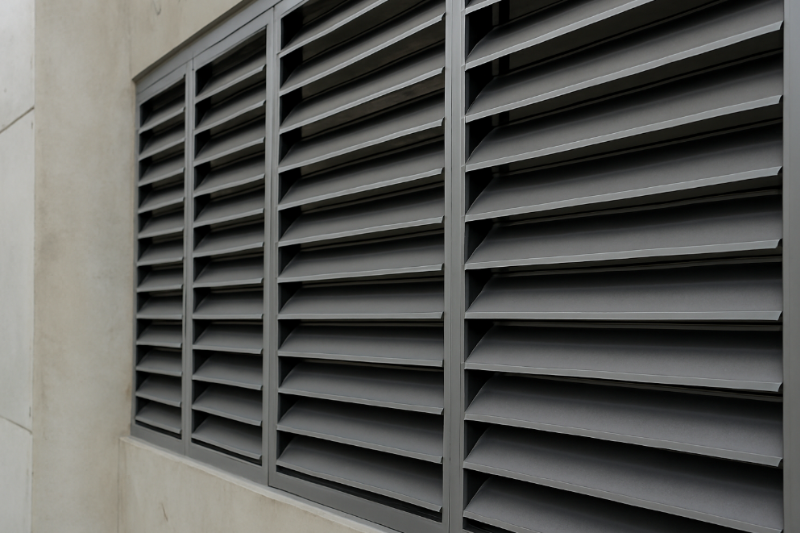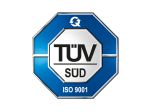Aluminium Louvers: Applications & Benefits
What Is an Aluminium Louver?
An aluminium louver is a set of parallel blades or slats (fixed or adjustable) arranged to allow airflow, block sunlight, and provide aesthetic appeal. These blades are usually angled and spaced in a frame to let air pass while keeping rain, debris, or direct sunlight out. Louvers often use extruded aluminium profiles, sheet metal bending, or assembled frame systems.
Because aluminium is lightweight, corrosion‑resistant, and easy to fabricate, aluminium louvers are widely used in architectural façades, sun shading, ventilation screens, and decorative screens.
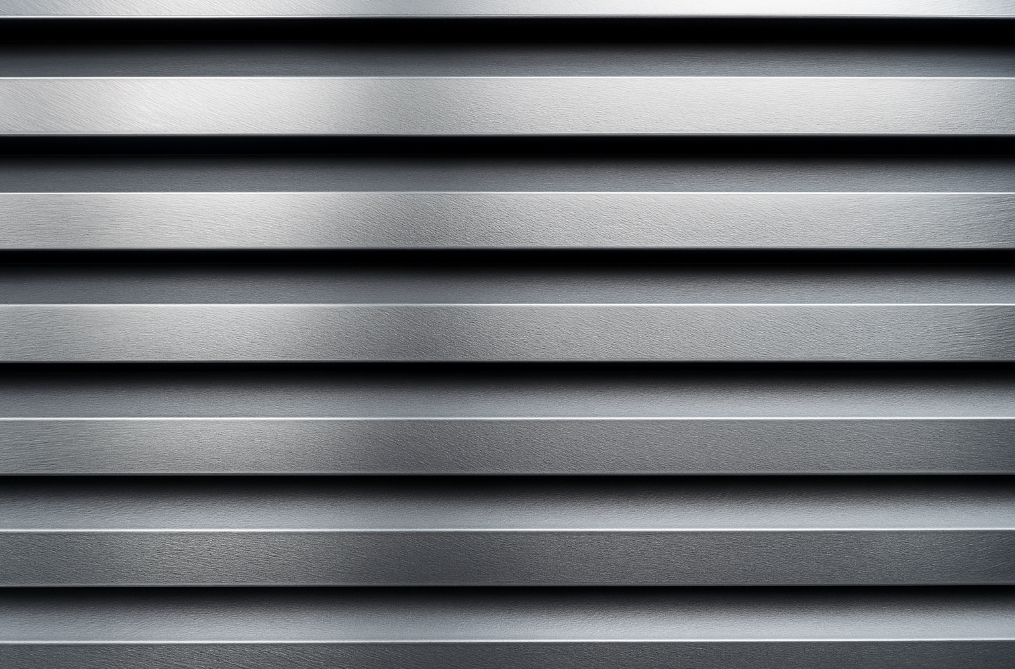
Why Aluminium Louvers Matter in Singapore
In Singapore’s tropical climate, buildings face high heat, intense sunlight, rain, and humidity. Aluminium louvers offer several advantages:
- Solar control & energy savings: Louvers reduce solar gain, lowering cooling loads in offices, malls, and residential buildings.
- Ventilation & airflow: They allow passive air movement, which helps ventilate corridors, equipment rooms, or car parks without full glass walls.
- Corrosion resistance: With proper finishing (anodising, powder coating), aluminium louvers can withstand coastal salt spray and humid air.
- Aesthetics & design flexibility: Architects like to use louver blades as decorative façade elements, rhythmic shading features, or privacy screens.
While aluminium forms a natural oxide, other metals benefit from galvanising.
What Is The Purpose of Aluminium Louvers
Below are the typical applications of aluminium louvers:
Façade sun shading & sunscreen panels
Louvers mounted on building exteriors reduce direct sunlight while maintaining views.
Ventilation grilles & mechanical room screens
Louvers act as covers for HVAC intakes, plant rooms, or generator enclosures.
Privacy & decorative screens
In landed homes, condo balconies, or retail fronts, louvers add privacy and design flair (e.g. powder‑coated vertical blades)
For clean glass edges and minimal framing, U-channel profiles for glass installation are a sleek, effective option.
Louvered windows & operable louver systems
Some systems allow the blades to tilt open/close for control over airflow and rain protection.
Sun louver canopies & pergolas
Louvers can form roofing slats in pergola forms, letting light/filter while shielding from direct sun or rain.
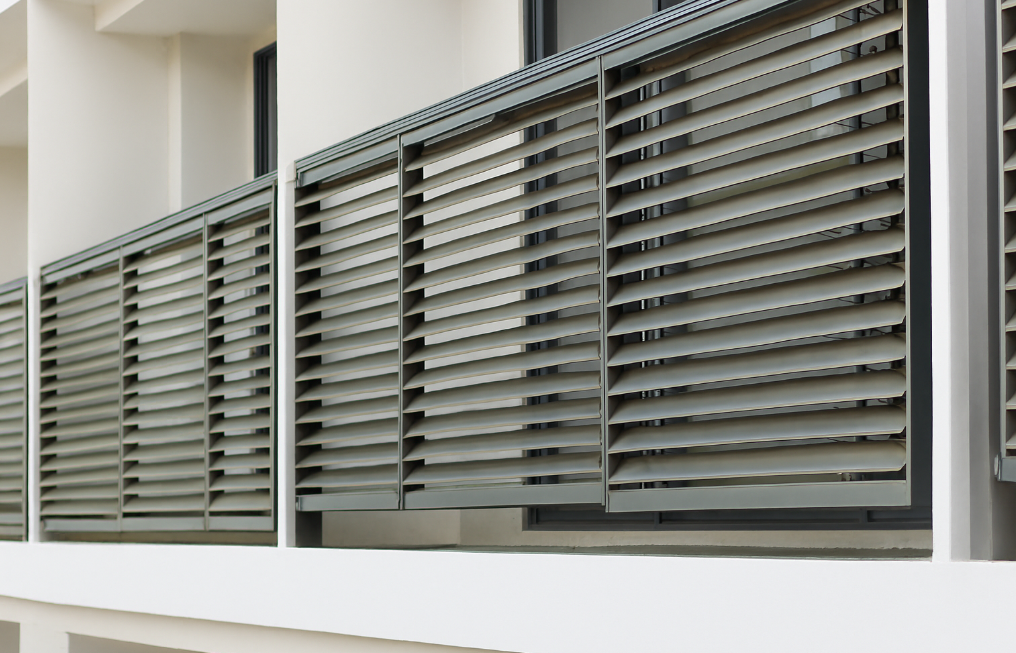
How to Specify Aluminium Louvers
Here are key parameters to define when ordering or designing:
| Parameter | Typical Value / Range |
|---|---|
| Blade material | 6063‑T5, 6061 alloys |
| Blade thickness | 1.0 mm to 3.0 mm (depending on span & load) |
| Blade width | 50 mm to 150 mm or custom profile |
| Blade angle / pitch | Typically 15° to 45°, or as design requires |
| Blade spacing / gap | Depends on airflow vs shading ratio |
| Frame profile size | Depends on structural load & architectural design |
| Finish | Powder coat (e.g. RAL colors), anodised, or custom coatings |
Do Louvers Reduce Heat?
Yes, louvers can significantly reduce heat gain, especially when installed on façades, windows, or roof pergolas. By blocking direct sunlight while still allowing airflow, aluminium louvers:
- Reduce interior temperatures
- Lower cooling loads on air conditioning systems
- Minimise glare while preserving natural light
This makes them a smart energy-saving feature in commercial and residential buildings across hot, humid regions like Singapore.
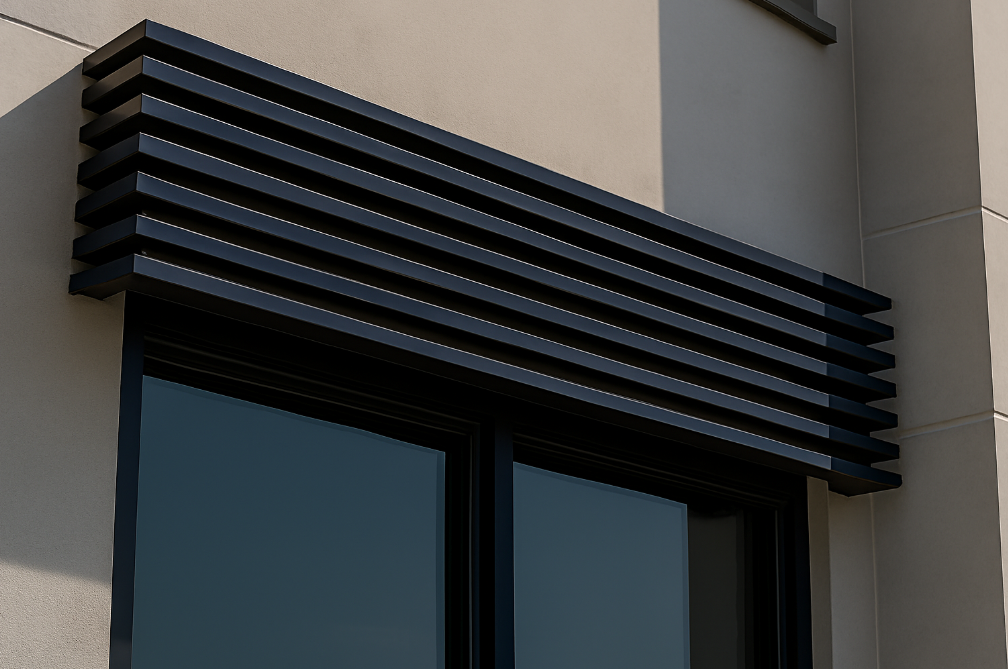
Are Aluminium Louvers Expensive?
Aluminium louvers are generally affordable and cost-effective over time. Basic fixed models in Singapore start from around $80–$150 per square metre, depending on size, finish, and design. While they may cost more upfront than timber or WPC, aluminium louvers last longer, require less maintenance, and perform better in harsh weather.
Though more expensive upfront than plastic or timber options, aluminium louvers offer better long-term performance and weather resistance.
Wondering if your louver frames can be painted after anodising? Our article on painting anodised aluminium explains how to do it properly for long-lasting results.
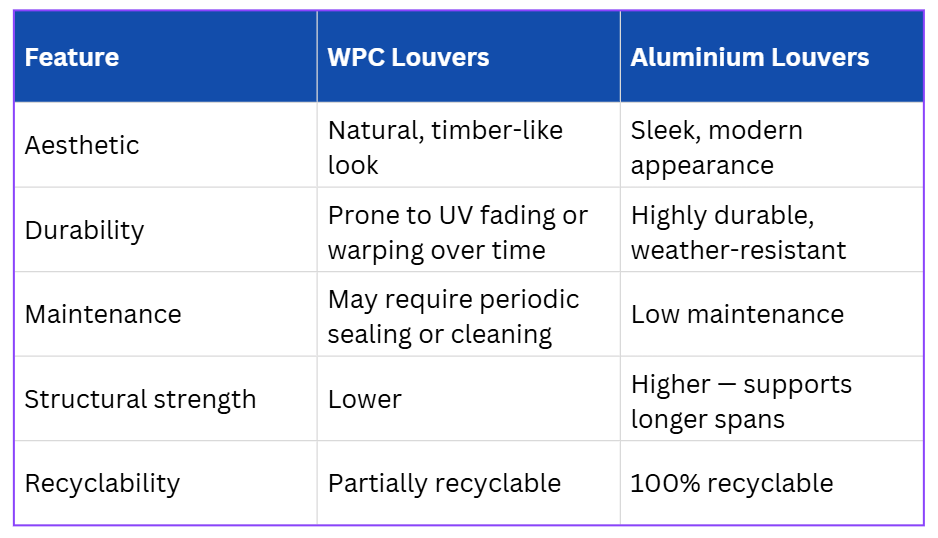
Are WPC Louvers Better Than Aluminium Louvers?
WPC louvers offer a wood-like appearance but are less durable than aluminium. Aluminium louvers are better for outdoor use due to their strength, corrosion resistance, and low maintenance. While WPC suits decorative indoor areas, aluminium is more reliable for long-term performance in harsh weather conditions like Singapore’s climate.
If your focus is longevity, structural integrity, and low maintenance, aluminium louvers are superior, especially for outdoor façades or commercial buildings. WPC may be more suitable for decorative indoor applications or where a natural wood look is preferred.
While aluminium louvers often use hollow sections or blade profiles, flat bars still play a role in certain frame elements. You can learn more via our flat bar sizes and use guide.
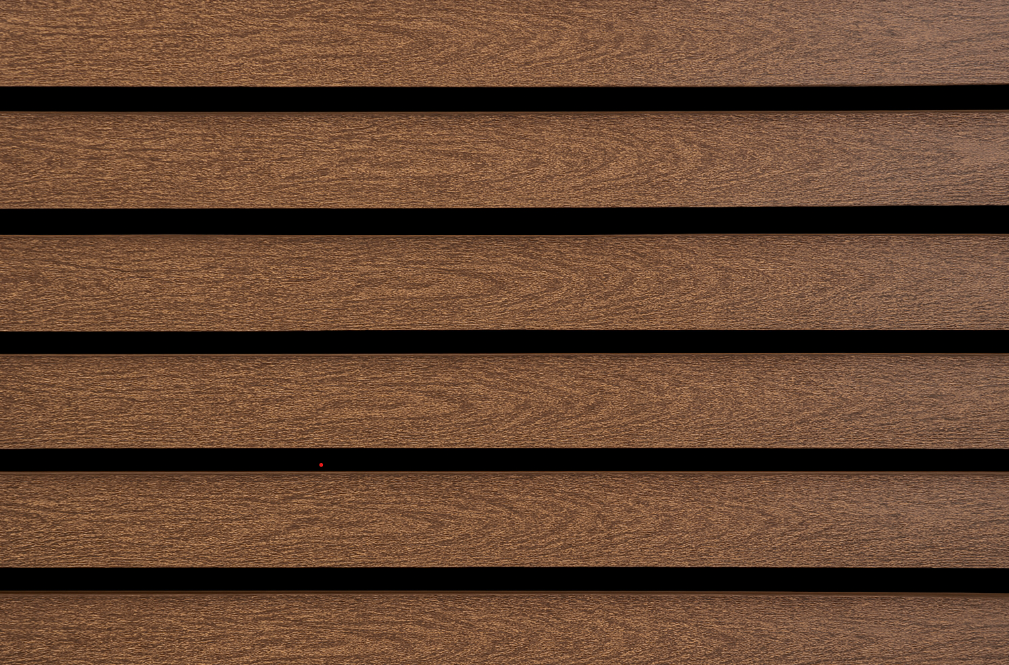
Conclusion
Aluminium louvers are a smart, long-lasting solution for sun shading, ventilation, and modern architectural design. At The Monster Builder, we combine expert aluminium sheet fabrication and CNC machining to deliver custom louver systems that meet exacting standards in strength, finish, and design precision. Whether you’re planning fixed façade louvers, ventilation panels, or decorative screens, our in-house capabilities ensure accurate cutting, bending, drilling, and surface treatment, all tailored to suit Singapore’s tropical climate and project requirements.
Send us your drawings or specifications, and we’ll help you bring your aluminium louver designs to life with reliable fabrication, fast turnaround, and quality you can trust.

